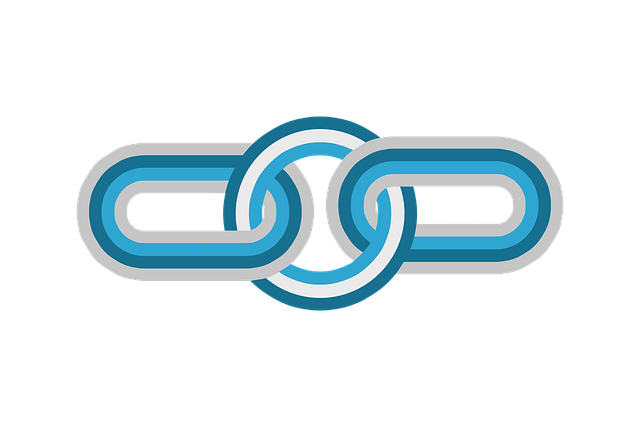TL;DR:
Structured data via collaborative projects like Schema.org significantly improves web page visibility and user experience by enhancing search engine results pages (SERPs) with rich snippets, knowledge graphs, and advanced search features. Using JSON-LD SEO techniques, websites implement Schema Markup for Entities by adding markup tags to HTML to define people, organizations, products, and events. This standardized vocabulary optimizes content for both search engines and users, boosting click-through rates and user satisfaction through more relevant search results. Key components include Semantic SEO Tags like `name`, `description`, `image`, and `url`. Integrating Schema.org into HTML improves search engine understanding and enables rich results. Advanced Structured Data using Schema.org is crucial for unlocking Rich Results and Featured Snippets, enhancing user experiences and boosting SEO strategies. Best practices involve adhering to defined schema types, maintaining consistency, and validating markup with tools like Google's Structured Data Testing Tool.
In an era dominated by vast information, structured data stands as a beacon of clarity for search engines. Schema.org, a collaborative project aimed at enhancing web usability, offers a powerful framework for implementing this structured data. This article delves into the intricacies of Schema.org, highlighting its benefits in boosting search engine understanding and fostering rich results like featured snippets. We’ll explore key components of its markup language, integration techniques, and advanced practices to unlock the full potential of Advanced Structured Data.
- Understanding Structured Data and Schema.org
- Benefits of Implementing Schema.org for Search Engines
- Key Components of Schema.org Markup Language
- Integrating Schema.org into Your Website's HTML
- Enhancing SEO with Rich Results and Featured Snippets
- Best Practices and Advanced Techniques for Structured Data Implementation
Understanding Structured Data and Schema.org

Structured data is a powerful tool that provides search engines with a clearer understanding of the content on web pages. By organizing information in a structured format, websites can enhance their visibility and deliver more relevant results to users. Schema.org is a collaborative project that develops and maintains a common vocabulary for structured data, making it easier for search engines like Google, Bing, and Yahoo to interpret web content. This standardized approach allows search engine algorithms to extract crucial details from web pages, leading to improved rich result displays.
Schema Markup for Entities, often implemented using JSON-LD SEO techniques, is a key feature of Schema.org. It involves adding specific markup tags to HTML code, enabling the identification and description of various entities such as people, organizations, products, or events. This structured data enriches search engine results pages (SERPs) with additional information, including rich snippets, knowledge graphs, and enhanced search features. By adopting Advanced Structured Data practices, web developers can ensure that their content is not only optimized for search engines but also presents a more engaging and informative experience to users.
Benefits of Implementing Schema.org for Search Engines

Implementing Schema.org offers a plethora of advantages for search engines, revolutionizing the way they comprehend and present information online. By utilizing structured data in the form of JSON-LD (JSON for Link Data), websites can provide rich, detailed insights about their content to search engine crawlers. This advanced structured data technique goes beyond basic microdata, allowing developers to create complex, well-defined schemas that enhance SEO efforts significantly.
With Schema.org, webmasters can optimize rich snippets, ensuring their content stands out in search results. It provides a standardized vocabulary for describing entities, events, and products, making it easier for search engines to interpret the context and intent behind each piece of information. This, in turn, leads to improved click-through rates and better user satisfaction, as users are presented with more relevant and useful search results. Rich Snippets Optimization through Schema.org is a game-changer, transforming the online landscape for businesses aiming to capture their target audience’s attention.
Key Components of Schema.org Markup Language

Schema.org Markup Language is a powerful tool for implementing advanced structured data, which plays a pivotal role in enhancing search engine understanding and driving Rich Snippets Optimization. Its key components include Semantic SEO Tags, such as `name`, `description`, `image`, and `url`, that provide contextual information to search engines about the content of a webpage. By marking up these tags, web developers enable search engines to interpret data more effectively, resulting in enhanced visibility and improved user experience.
Moreover, Schema.org supports Microdata vs JSON-LD formats, offering flexibility in how structured data is implemented. Microdata integrates directly into HTML using custom attributes, while JSON-LD uses a JavaScript object notation (JSON) format for external files. Both methods aim to make it easier for search engines to parse and utilize structured data, ultimately contributing to better semantic SEO tags and, consequently, more compelling rich results displayed in search engine results pages (SERPs).
Integrating Schema.org into Your Website's HTML

Integrating Schema.org into your website’s HTML is a crucial step in enhancing search engine understanding and enabling rich results. This advanced structured data approach leverages predefined vocabulary to describe your content, making it easier for search engines like Google to interpret and display information in an engaging format. By adding specific Semantic SEO Tags, you provide valuable context around your web pages, which can significantly improve Rich Snippets Optimization.
Microdata vs JSON-LD is not a competition but rather a choice based on your website’s needs. Microdata is embedded directly within HTML using custom attributes, while JSON-LD offers a more structured and machine-readable format. Both methods have their merits; choosing the right one depends on factors such as complexity, ease of implementation, and existing technical infrastructure. Ultimately, incorporating Schema.org structured data ensures your website becomes part of a vibrant tapestry of rich, semantic information that enhances user experience and drives better visibility in search results.
Enhancing SEO with Rich Results and Featured Snippets

Search engines have evolved beyond basic keyword matching to provide users with more relevant and engaging search results. One significant advancement in this area is the concept of Rich Results and Featured Snippets. These enhanced search outcomes not only improve user experience but also offer a powerful tool for businesses to boost their Search Engine Optimization (SEO) strategies. By implementing Advanced Structured Data using Schema.org, developers can unlock these rich features.
Schema.org plays a pivotal role in bridging the gap between web content and semantic SEO Tags. It provides a standardized vocabulary to describe web pages and their content, making it easier for search engines to understand and interpret information. For instance, when a website includes product details using Schema.org’s `Product` class with JSON-LD formatting, search engines can easily identify and display product reviews, pricing, and availability as Featured Snippets, significantly increasing visibility and click-through rates. This evolution in JSON-LD SEO demonstrates how structured data can be a game-changer for businesses aiming to stay ahead in the digital landscape.
Best Practices and Advanced Techniques for Structured Data Implementation

When implementing structured data using Schema.org, best practices include adhering to well-defined schema types and properties, ensuring consistency across your website, and validating your markup for accuracy using tools like Google’s Structured Data Testing Tool. It’s essential to use appropriate data types for each entity, such as `Person`, `Organization`, or `Product`, and to link related entities correctly to improve search engine understanding.
For advanced techniques, consider leveraging JSON-LD SEO for more complex data structures. While Microdata vs JSON-LD debates exist, JSON-LD has gained prominence due to its readability and support by major search engines. Schema Markup for Entities is particularly useful when describing intricate concepts or products, allowing you to provide rich details that can trigger enhanced search results like knowledge graphs or featured snippets.
